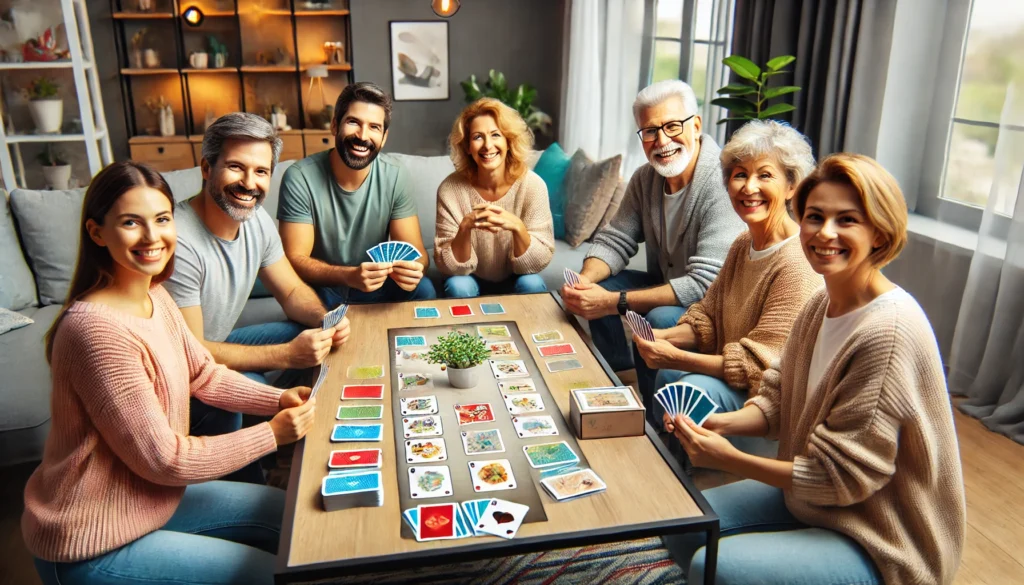Elevate Your Cognitive Game: Why Memory Enhancement Matters
In an ever-evolving world where adaptability and mental agility are paramount, nurturing one’s memory has become a cornerstone of success and well-being. Memory is not merely about recalling names, dates, or facts; it is central to problem-solving, learning, and creativity. Among the numerous strategies for cognitive enhancement, engaging with the best games to improve memory emerges as both an effective and enjoyable option. These games challenge your brain to grow stronger, promoting neuroplasticity and cognitive flexibility while delivering a sense of accomplishment.
This article explores the profound impact of memory games—including apps or games that help with memory loss and great memory games designed for various skill levels. Through detailed insights into their benefits, scientific underpinnings, and practical tips, we reveal how these games can enrich your life. Whether you’re aiming to sharpen your short-term recall, enhance focus, or simply embrace lifelong learning, memory games provide a proven pathway to cognitive excellence.
You may also like: How to Improve Working Memory: Top Short-Term Boosters and Practical Tips
The Science of Memory and Games
Memory is a complex cognitive process involving the encoding, storage, and retrieval of information. It relies on various regions of the brain, including the hippocampus and prefrontal cortex, to function optimally. Memory games stimulate these areas, strengthening neural connections and promoting plasticity—the brain’s ability to adapt and grow.
Brain games to boost memory are designed to target specific cognitive functions such as recall, attention, and pattern recognition. By challenging the brain to retain and process information under varying conditions, these games create an environment that encourages growth and development. Research shows that regular engagement with such activities can slow age-related cognitive decline and enhance mental resilience. Furthermore, incorporating apps or games that help with memory loss into your daily routine can improve everyday functionality and quality of life.
Benefits of Memory Games
Enhancing Short-Term Recall
Short-term memory is the brain’s ability to hold and manipulate information for immediate use. Activities that demand quick thinking and recall, such as memory games, can strengthen this capacity. The best games for memory often involve tasks like matching pairs, remembering sequences, or solving puzzles, all of which train the brain to retain information efficiently. Over time, this practice leads to noticeable improvements in day-to-day recall.
Increasing Focus and Attention
The modern world is filled with distractions, making it difficult to concentrate for extended periods. Memory games demand sustained attention, as players must focus on patterns, sequences, or details to succeed. This heightened concentration carries over into other areas of life, enhancing productivity and decision-making. Engaging with great memory games regularly helps sharpen focus and improves the brain’s ability to filter out distractions.
Promoting Relaxation and Stress Relief
While memory games challenge the mind, they also offer a relaxing escape from everyday stressors. The immersive and interactive nature of these activities encourages mindfulness, allowing players to focus solely on the task at hand. Many apps or games that help with memory loss are designed to be both challenging and soothing, providing a balance that supports mental well-being.
Supporting Lifelong Cognitive Health
Engaging in brain games to boost memory is not just about immediate benefits; it’s also an investment in long-term brain health. Regular cognitive stimulation has been shown to delay the onset of age-related memory decline and reduce the risk of conditions like Alzheimer’s disease. Incorporating the best games to improve memory into your routine is a proactive approach to maintaining mental sharpness throughout life.
Types of Memory Games
Traditional Card Games
Classic memory games, such as Concentration or Memory Match, involve flipping over cards to find matching pairs. These games challenge players to remember the location of specific cards, enhancing recall and pattern recognition. Their simplicity and effectiveness make them a timeless choice for people of all ages.
Digital Apps and Online Platforms
The digital era has brought a wealth of apps or games that help with memory loss to our fingertips. These platforms offer a variety of options, from puzzles and matching games to trivia challenges. Many of these apps are customizable, allowing users to adjust difficulty levels and track their progress over time. Digital platforms are especially convenient for integrating cognitive training into busy schedules.

Puzzle-Based Memory Games
Puzzles that require players to solve problems or identify patterns are among the best games to improve memory. These activities often involve remembering sequences, decoding clues, or organizing information logically. They are versatile and can be tailored to individual skill levels, making them suitable for both beginners and advanced players.
Educational Memory Games
Games that combine learning with memory enhancement provide a dual benefit. For example, trivia games or vocabulary-building activities challenge players to retain new information while exercising recall. These brain games to boost memory are particularly valuable for students and lifelong learners.
Themed and Story-Based Games
Immersive games that incorporate storytelling or themes offer a unique way to engage the brain. Players are tasked with remembering details, solving mysteries, or navigating complex narratives. These great memory games are not only entertaining but also highly effective at enhancing focus and recall.
Strategies for Maximizing the Benefits of Memory Games
Establishing a Routine
Consistency is key to reaping the benefits of memory games. Setting aside a specific time each day or week to play ensures that cognitive gains are sustained. Whether it’s a quick session with a mobile app or a more in-depth experience with a puzzle game, regular practice leads to significant improvements over time.
Balancing Challenge and Enjoyment
The most effective memory games strike a balance between being challenging and enjoyable. Games that are too easy may not stimulate the brain enough, while overly difficult ones can lead to frustration. Experimenting with different levels and types of games helps maintain motivation and ensures consistent progress.
Incorporating Social Interaction
Memory games are an excellent way to connect with others. Playing with friends or family adds a social dimension that enhances the experience. Multiplayer games, trivia nights, or collaborative puzzles encourage teamwork and foster a sense of community.
Combining Games with Other Cognitive Activities
To maximize cognitive benefits, consider pairing memory games with other brain-boosting activities such as reading, meditation, or physical exercise. This holistic approach amplifies the positive effects and promotes overall mental well-being.
Long-Term Implications of Memory Games
Mitigating Cognitive Decline
Regular engagement with memory games can delay the onset of cognitive decline associated with aging. By consistently challenging the brain, these activities help maintain neural plasticity and resilience. The best games for memory are particularly effective in preserving mental sharpness and adaptability.
Enhancing Emotional Well-Being
The sense of achievement that comes from mastering a challenging game fosters confidence and positivity. This emotional boost creates a virtuous cycle, as improved mood enhances motivation to engage in further cognitive activities.
Cultivating a Growth Mindset
Memory games encourage a proactive approach to learning and self-improvement. By embracing challenges and celebrating progress, players develop a growth mindset that extends beyond gaming into other aspects of life.

Transform Your Mind with the Best Memory Games
Engaging with memory games is not merely an exercise in fun—it is a commitment to fostering cognitive health, emotional resilience, and lifelong learning. By exploring the best games to improve memory, you take an active role in shaping a sharper and more adaptable mind. From immersive storytelling adventures to practical apps or games that help with memory loss, these tools are designed to meet diverse needs and preferences.
Now is the time to embrace this dynamic approach to mental fitness. Whether you’re delving into brain games to boost memory or connecting with loved ones over great memory games, the benefits are profound and far-reaching. Start today, and unlock the full potential of your mind for a brighter, more focused future.
Further Reading
SoM: Boost Your Brain: Working Memory Exercises for Adults
ND: 12 Fun Working Memory Games And Activities For Adults
LH: 25 Memory Exercises That Actually Help You Remember More
MND: 22 brain exercises to improve memory, cognition, and creativity
MMM: How to Improve Working Memory: 8 Exercises That Work
Important Note: The information contained in this article is for general informational purposes only, and should not be construed as health or medical advice, nor is it intended to diagnose, prevent, treat, or cure any disease or health condition. Before embarking on any diet, fitness regimen, or program of nutritional supplementation, it is advisable to consult your healthcare professional in order to determine its safety and probable efficacy in terms of your individual state of health.
Regarding Nutritional Supplements Or Other Non-Prescription Health Products: If any nutritional supplements or other non-prescription health products are mentioned in the foregoing article, any claims or statements made about them have not been evaluated by the U.S. Food and Drug Administration, and such nutritional supplements or other health products are not intended to diagnose, treat, cure, or prevent any disease.


